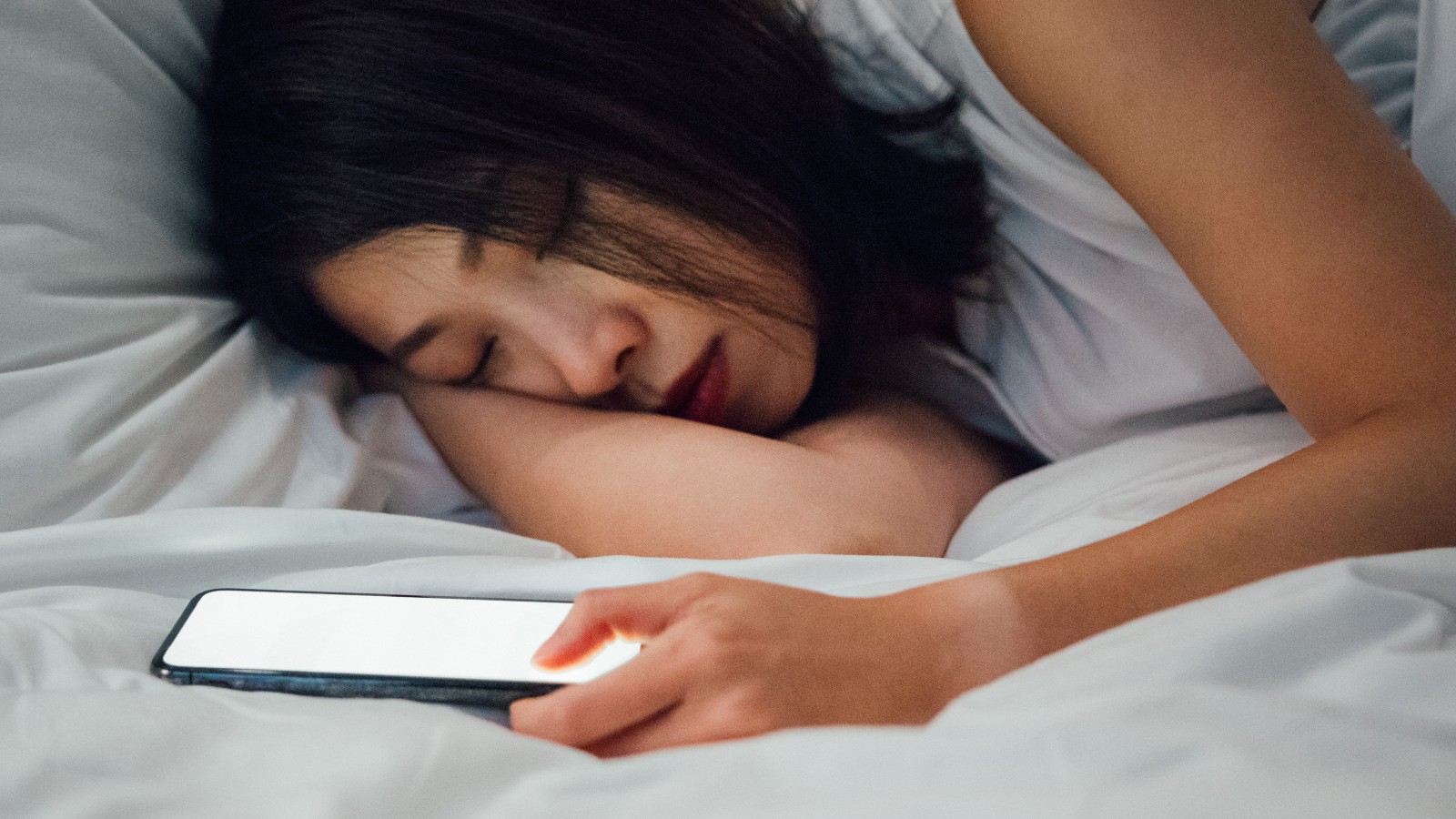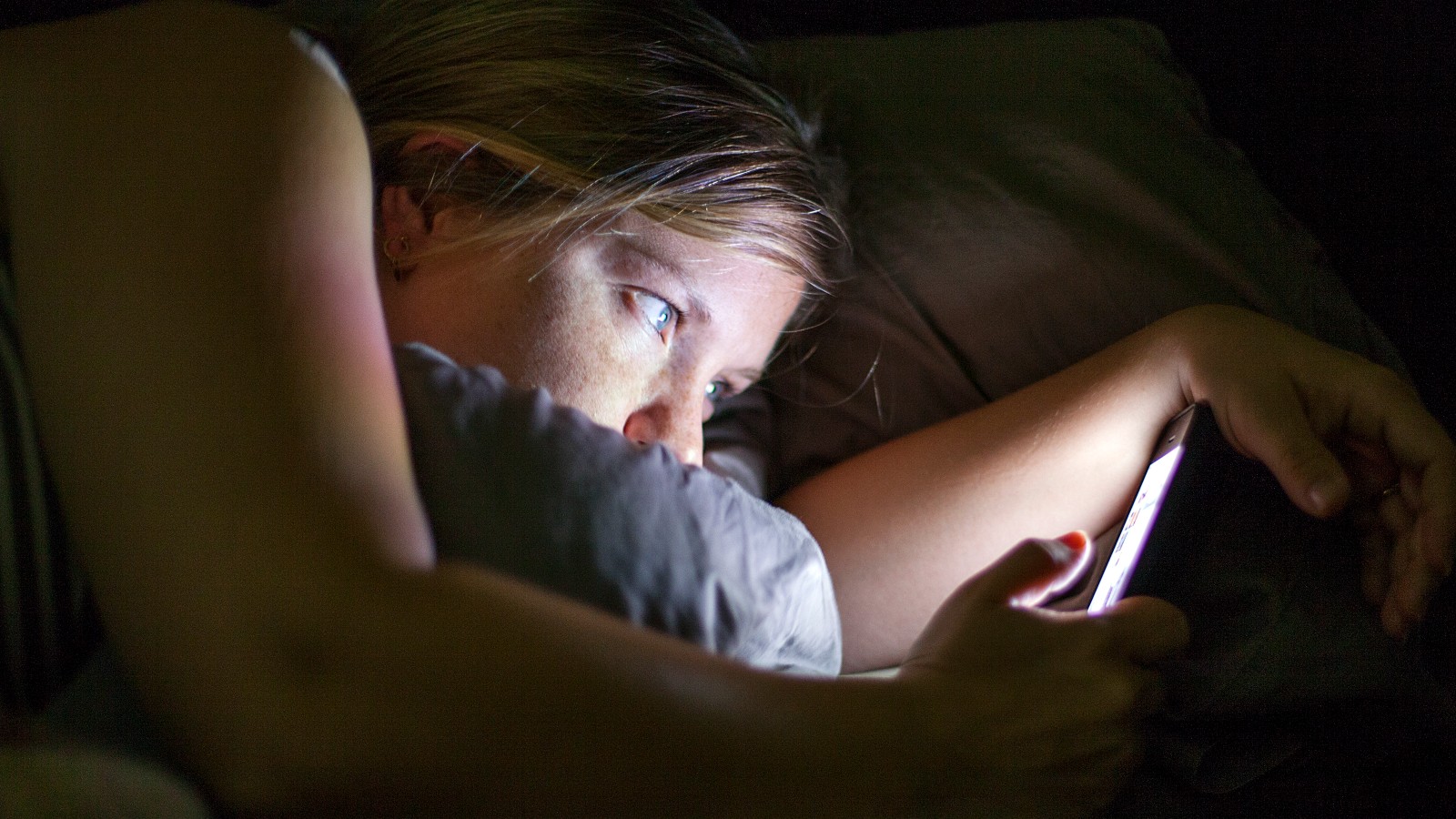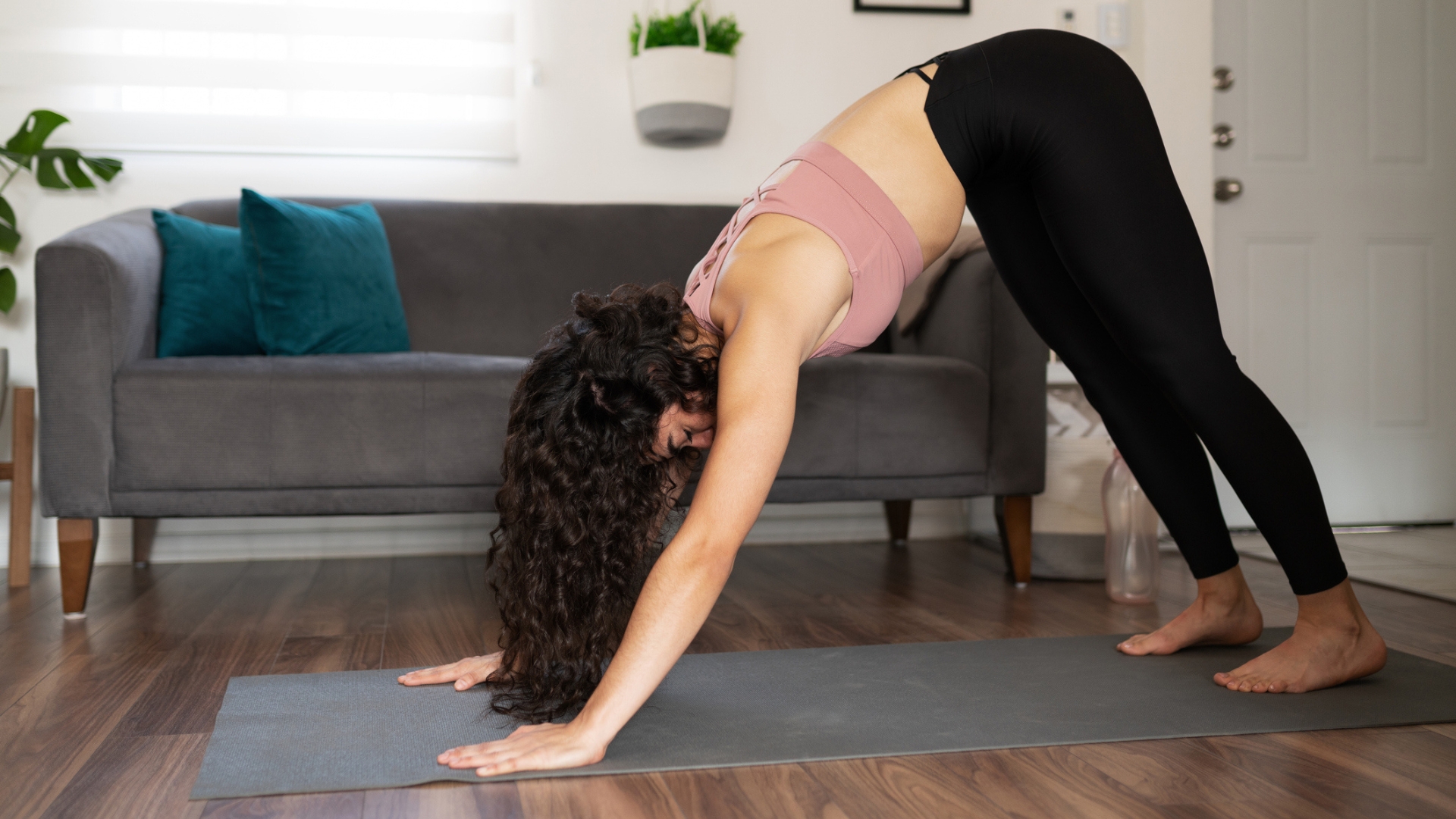Why you NEED to sleep with your phone in another room
Two simple rules – sticking to a routine and ditching screens before bed – can help you have a healthy nights sleep


We all know that sleeping in the same room as our mobile or even checking it too close to bedtime will impact our sleep, but we all do it.
However, new research from the Sleep journal, has proved too much screen time can result in insomnia issues, shorter sleep times and later bedtimes.
The research was conducted in Italy, at two different periods during the Covid 19 lockdowns - on the third and seventh week. And while internet usage was bound to increase as people were inside more - on these weeks their average time using the internet was double compared to the year before.
The data was collected via a web-based survey where they asked 2,000 people about their sleep quality, insomnia symptoms, and how often they used their mobiles.
The best way to fix your sleep cycle is to keep to the same routine every night, while stress and too much light, from devices such as mobiles, interfere with melaotin, a natural sleep hormone, which makes us sleepy.

Between the first and second week, the data showed that 92 per cent of people had increased time spent on mobiles and other electronic devices.
While worryingly these respondents also reported increased insomnia, less time in bed, later bedtimes, and later wake times. Another percentage of people who took the survey, seven per cent, actually saw better sleep patterns because they had decreased their digital device habits.
Get the Fit&Well Newsletter
Start your week with achievable workout ideas, health tips and wellbeing advice in your inbox.
The study’s author, Federico Salfi, Ph.D.(c), in the Department of Biotechnological and Applied Clinical Sciences at the University of L’Aquila, in Italy ,said about the study: “COVID just provided an ideal context to highlight the detrimental effects of technologies on the sleep of the general population."
"However, considering the involved mechanisms of action, we think that our findings certainly can be generalized to the future, as technologies will find more and more space in our daily routine.”
He went on to say how that the use of mobiles, just before sleep, can change our body's natural ability to want sleep: "The overuse of electronic devices in the evening counteracts natural sleepiness due to the emotionally charged content."
Our body needs to know the difference between daytime and nighttime - so not enough light in the day and too much unnatural light in the evening will confuse our melatonin levels. Try to stash your phone away an hour before bed and meditate or read, or better still, leave your phone in another room all night.
Our bedroom environment can also have a detrimental effect on our sleeping patterns - try and create a sanctuary in your bedroom, while you can also check out our guide to the best mattress toppers.
Sarah is a freelance journalist who writes about fitness and wellbeing for the BBC, Woman&Home and Tech Radar. During lockdown she found her love of running outside again and now attempts to run around 50 miles a month. When it comes to other fitness, she loves a sweaty cardio session – although since she’s been working out from home she’s sure her downstairs neighbors aren’t too happy about it. She also loves to challenge herself - and has signed up to do hiking holidays, intense bootcamps and last year she went on her dream activity holiday: paddle boarding around deserted islands in Croatia. On her rest days, she loves to recover with a simple yoga flow session – the perfect antidote to her active fitness schedule.
-
 A Pilates instructor says this is the beginner-friendly core exercise everyone should try
A Pilates instructor says this is the beginner-friendly core exercise everyone should tryForget crunches, this is the perfect foundation move
By Alice Porter Published
-
 Prevent poor posture and release tension from sitting down with these four simple stretches from a yoga instructor
Prevent poor posture and release tension from sitting down with these four simple stretches from a yoga instructorThe daily poses he swears by, no matter what
By Alice Porter Published